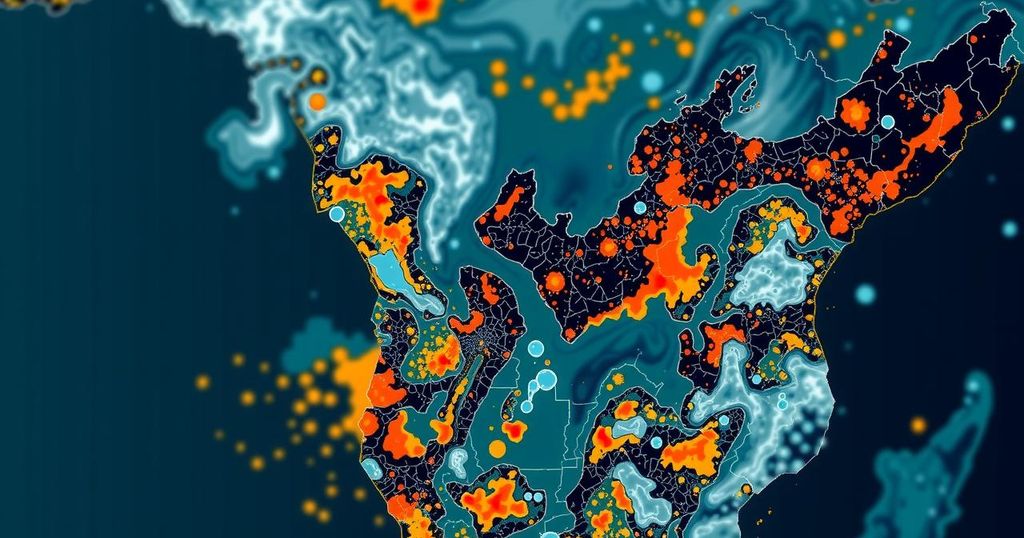A recent study has concluded that human-induced climate change intensified the severe rains leading to devastating floods in Cameroon, Chad, Niger, Nigeria, and Sudan, which resulted in approximately 1,500 deaths and over 1 million displacements. Global warming is responsible for making this year’s downpours 5-20% more intense, with forecasts suggesting such heavy rainfall may become an annual occurrence if temperature increases continue. Experts are calling for enhanced investment in early warning systems and infrastructure improvements.
Recent research indicates that the heavy rains that have led to catastrophic flooding across several African countries, including Cameroon, Chad, Niger, Nigeria, and Sudan, have been exacerbated by anthropogenic climate change. According to a study released by an international coalition of scientists, particularly from World Weather Attribution (WWA), global warming has rendered the seasonal downpours this year approximately 5 to 20 percent more intense in the Niger and Lake Chad basins. The report warns that if global temperatures rise, we may face similar levels of heavy rainfall on an annual basis. Izidine Pinto, a researcher with the Royal Netherlands Meteorological Institute, highlighted, “Spells of heavy summer rainfall have become the new normal in Sudan, Nigeria, Niger, Cameroon, and Chad.” These floods have had a catastrophic impact, resulting in approximately 1,500 fatalities and displacing over a million individuals in West and Central Africa, as reported by the United Nations Office for the Coordination of Humanitarian Affairs (OCHA). Additionally, the intense rainfall has overwhelmed dam infrastructures in Nigeria and Sudan. WWA further projects that if global warming reaches a level of 2 degrees Celsius (3.6 degrees Fahrenheit), which may occur as soon as the 2050s, these kinds of downpours will likely become an annual occurrence in the regions most affected. The organization has emphasized the urgent need for enhanced investment in early warning systems and critical updates to dam infrastructures. Joyce Kimutai, a researcher at the Centre for Environmental Policy at Imperial College, asserted, “Africa has contributed a tiny amount of carbon emissions globally, but is being hit the hardest by extreme weather.” She underscored the responsibility of the upcoming COP29 climate talks, scheduled for November, to ensure that wealthier nations provide substantial financial assistance to alleviate these impacts.
The increasing severity and frequency of extreme weather events, particularly heavy rainfall leading to floods, is a significant concern in the context of climate change. In Africa, where the contribution to global carbon emissions is minimal compared to the impacts faced, the situation underscores a pressing need for global collaborative action. The ongoing challenges posed by climate change have led to heightened urgency in discussions surrounding climate mitigation and adaptation, especially in regions like West and Central Africa, which are disproportionately affected by extreme weather events as exemplified by recent devastating floods.
The findings of the recent study shed light on the dire consequences of climate change, particularly in African nations that have been severely impacted by intensified rainfall and subsequent flooding. The projections for annual heavy rainfall under the scenario of continued global warming call for immediate action in developing adaptive strategies, investing in infrastructure, and ensuring that financial support from developed nations is forthcoming in addressing the challenges faced by vulnerable regions.
Original Source: www.usnews.com






